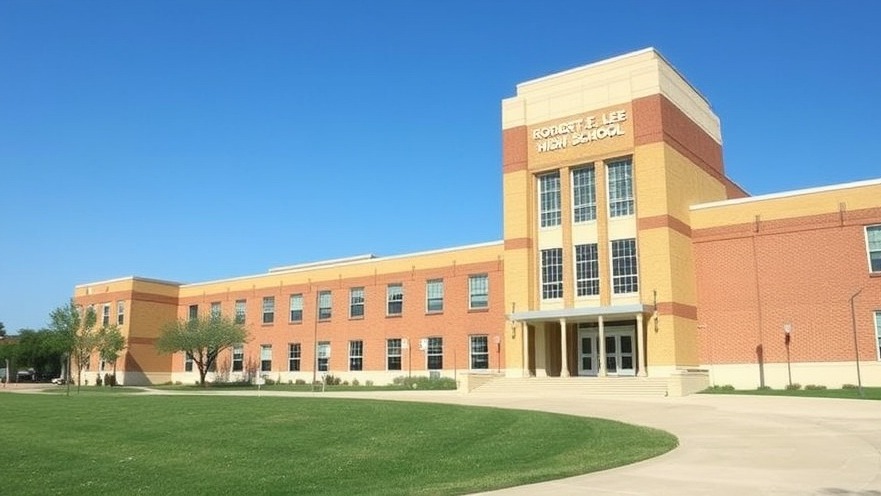
The Controversy Over a Name: Midland Lee's Legacy
In the heart of Midland, Texas lies a brewing controversy that encapsulates the national debate on race and heritage: the possible return of Robert E. Lee High School. Just five years after renaming it Legacy High School to distance itself from Confederate associations, the Midland Independent School District board is now considering reverting back to its original name. This shift brings to the forefront not only local sentiments but also reflects a broader political and cultural landscape across the nation.
Historical Context: The Name Change and Its Significance
In 2020, the Midland ISD's decision to rename Robert E. Lee High stemmed from a widespread movement responding to Black Lives Matter protests that called for the removal of symbols honoring the Confederacy. The name change to Legacy High aimed to foster a more inclusive community by shedding ties to a divisive figure in American history. However, as political dynamics shift, so too do the motivations behind naming conventions.
A Community Divided: Voices from Both Sides
Advocates for renaming the school back to Lee argue that it honors local pride and the legacy of the school’s successful sports teams, specifically highlighting the Midland Lee Rebels football team. Tim Lirley, an alumnus, stated, "Everybody wants to be a Lee Rebel. Nobody wants to be a Robert E. Lee." This showcases a community sentiment that is deeply rooted in local identity rather than a connection with the historical implications of the name.
Conversely, community members like La’Toya Mayberry express deep concern regarding such a name change. Mayberry conveys that restoring a name linked to a Confederate leader conveys a message of exclusivity, particularly as her daughter represents the school in various athletic competitions. This highlights the emotional stakes involved, as many residents feel a personal connection to the school’s identity.
A National Narrative: Trends in Renaming Practices
The debate over Robert E. Lee High School is not an isolated incident; it fits within a larger national narrative regarding how America honors its past. Following major national incidents, like the 2020 Black Lives Matter protests, numerous schools, parks, and public places have taken steps to remove or rename locations associated with Confederate leaders. Yet, as the political landscape shifts—evidenced by statements from leaders such as former President Trump, who advocated for the retention of Confederate names—the momentum gained towards progressive renaming practices is met with vigorous pushback.
Possible Outcomes: What Lies Ahead for Midland ISD?
As Midland ISD prepares for a vote potentially as soon as next week, the outcome remains uncertain. If the school board decides to restore the Lee name, Midland will join nearly 40 other schools in Texas that reject distancing from Confederate associations, according to data from the Southern Poverty Law Center.
Such a decision would undoubtedly ripple through the community, reverberating discussions around identity, heritage, and accountability. Ultimately, no matter the outcome, the voices heard in Midland reflect a microcosm of America’s struggle to navigate its historical complexities in a modern context.
Engaging with Current Events: The Role of Local Education in Larger Tensions
This local issue mirrors a significant national discourse around education and the legacies we choose to uphold. The intersection of race, history, and civic identity speaks to the hearts of many Americans who are grappling with the implications of their community’s past and its representation in public life. Observing the outcome in Midland will provide insight into the evolving narrative of how communities engage in reflection and reconciliation.
As Midland navigates this challenging societal debate, community members, students, and educators alike must consider what their names and symbols say about their collective values. The question remains for Midland: In honoring the past, what kind of future are we building for our children?
 Add Element
Add Element  Add Row
Add Row 



Write A Comment